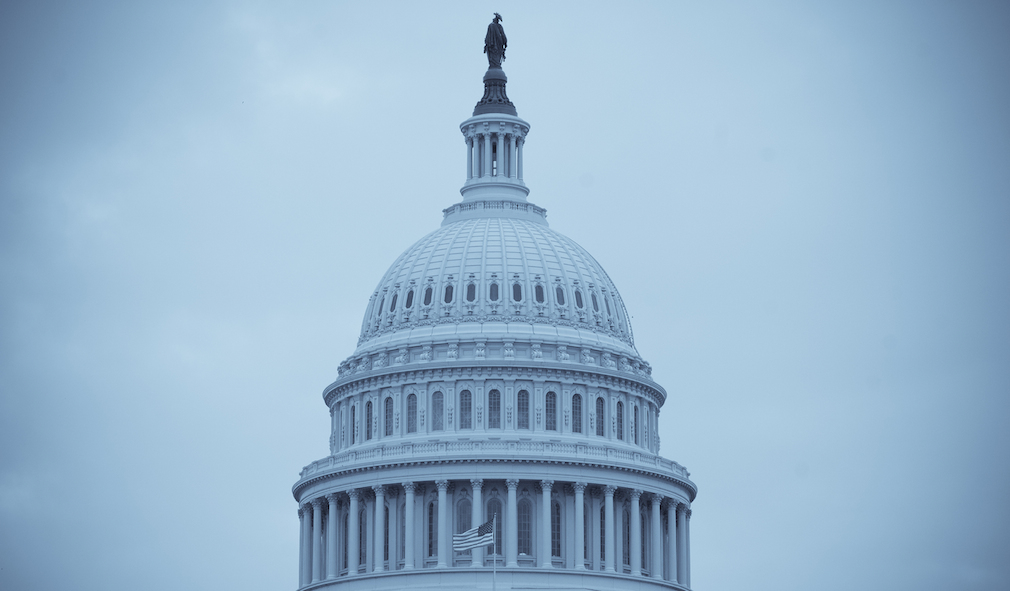A group of more than 50 Congressional Democrats are questioning the motivation of Consumer Financial Protection Bureau Acting Director Mick Mulvaney’s reported decision to strip the agency’s Office of Fair Lending and Equal Opportunity of its enforcement powers.
Earlier this month, the Washington Post reported that Mulvaney plans to bring the Office of Fair Lending and Equal Opportunity directly under his own supervision and remove the office’s enforcement authority.
In the wake of the report, fair housing advocates called out the move, suggesting that Mulvaney was taking “yet another step” to dismantle the CFPB.
Now, more than 50 Democrats, including Sens. Elizabeth Warren, D-Mass.; Sherrod Brown, D-Ohio; Robert Menendez, D-N.J.; and Kamala Harris, D-Calif.; along with Reps. Maxine Waters, D-Calif.; and Elijah Cummings, D-Maryland, want to know what exactly Mulvaney is planning to do when it comes to fair lending.
“Just ten years after a financial crisis that destroyed trillions of dollars in housing wealth and devastated traditionally underserved communities targeted by predatory lenders, we are troubled by reports that the Consumer Financial Protection Bureau intends to reorganize the Office of Fair Lending and Equal Opportunity and strip the Office of its enforcement and supervisory role,” the Democrats write in a letter sent to the CFPB. “We are concerned that in taking these actions, you will frustrate the CFPB’s efforts to ensure all ‘consumers are protected from unfair, deceptive, or abusive acts and practices and from discrimination.’”
Prior to Mulvaney’s reported decision, the Office of Fair Lending was responsible for the enforcement of fair lending laws, including pursuing redlining allegations against mortgage lenders.
Redlining is a practice of excluding certain areas from services due to the area’s racial composition or economic makeup.
In 2015, the CFPB’s Office of Fair Lending worked with the Department of Justice to take action against Hudson City Savings Bank for providing unequal access to mortgage credit in black and Hispanic neighborhoods.
At the time, the $27 million settlement with Hudson City was the largest redlining settlement in the nation’s history.
“Under prior leadership, CFPB staff were vigilant in protecting racial, ethnic, and other minorities from discrimination by unscrupulous lenders,” the Democrats write, referencing former CFPB Director Richard Cordray. Cordray stepped down last year to run for governor of Ohio.
“OFLEO’s record makes it clear that the office has played an important role in fighting discrimination– just as Congress intended,” the Democrats continue. “While the details of the reorganization have not been fully disclosed, it will undoubtedly hinder this important work.”
The Democrats write that Mulvaney’s decision is a “significant departure” from the way the CFPB previously enforced fair lending laws.
“Over the last six and a half years, OFLEO helped design specialized oversight and supported bank examiners in assuring that CFPB’s regulated institutions were complying with anti-discrimination laws,” the Democrats write.
“When the entities were unable to resolve problems identified in the examinations, OFLEO staff worked with the CFPB’s enforcement lawyers and the Department of Justice to bring lawsuits,” the Democrats continue.
“OFLEO also counseled banks in their efforts to build good compliance systems,” they add. “Of those functions, only the counseling will be supplied after the reorganization, though in the absence of dedicated anti-discrimination enforcement, it’s not clear whether there will be continuing demand.”
In the letter, the Democrats pose a series of questions that they want the CFPB provide answers for by no later than March 1, 2018, including:
- Did the CFPB perform a legal analysis to determine whether stripping the OFLEO of its enforcement authority would hinder the CFPB’s ability to carry out its statutory mandate to provide oversight and enforcement of federal fair lending laws?
- How will bringing the OFLEO under the control of the Office of the Director modify the Bureau’s decision-making process with regard to enforcement and other actions to protect consumers from unfair discrimination?
- What, if any, continuing role will the OFLEO play in supporting the Bureau’s enforcement of fair lending laws?
- How will the reorganization affect the reporting duties for OFLEO employees, including the OFLEO Assistant Director?
- After the reorganization, which officials in the Office of the Director will be consulted about OFLEO activities? Which of these officials have been hired, politically appointed, or detailed to the CFPB since November 24, 2017?
- After the reorganization, which political appointees and temporarily-detailed employees will be granted veto power over OFLEO activities and decisions?
- What criteria will political appointees and temporarily-detailed employees in the Office of the Director use to determine whether the Bureau will follow the recommendations of career policy experts in the OFLEO?
- What actions will the Bureau take to ensure that OFLEO decisions continue to be based on the best advice of independent, expert, career policy staff?
- How will new requirements that the OFLEO report to the Office of the Director enhance the CFPB’s ability to protect consumers from unfair discrimination?
- Please describe any independent analyses, such as third-party studies, that informed the decision to bring the OFLEO under the Office of the Director and strip OFLEO of its enforcement and supervisory authority.
- Did Mr. Mulvaney or any other CFPB employee consult with or discuss this reorganization with any outside entities – including lobbyists or representatives of the banking or financial services industry – prior to announcing the reorganization?
- Did Mr. Mulvaney consult with other officials, employees, or political appointees at OMB or the White House about the OFLEO reorganization prior to its announcement?
- Is the CFPB considering any substantive changes to its approach to the enforcement of fair lending laws, including changes to the CFPB’s interpretation of these laws?
To read the Democrats’ letter in full, click here.






